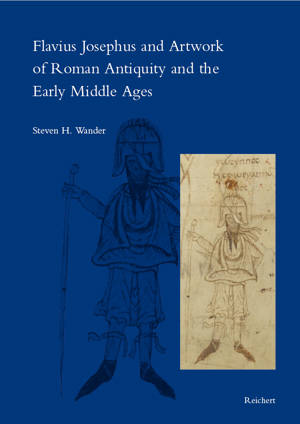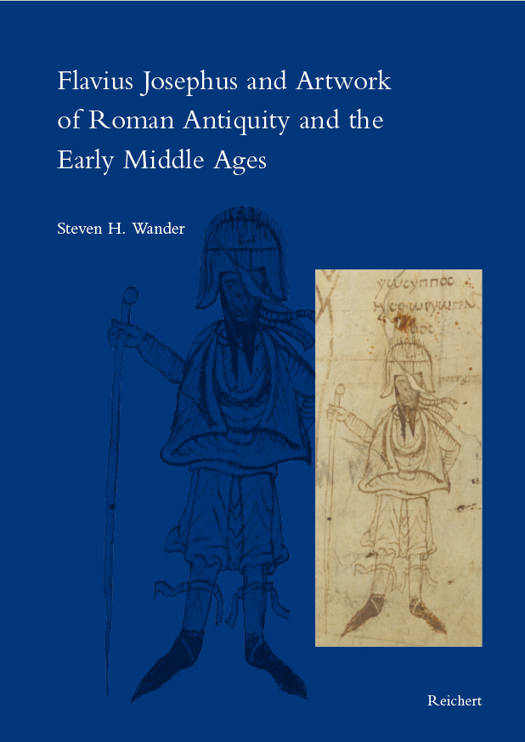
- Retrait gratuit dans votre magasin Club
- 7.000.000 titres dans notre catalogue
- Payer en toute sécurité
- Toujours un magasin près de chez vous
- Retrait gratuit dans votre magasin Club
- 7.000.0000 titres dans notre catalogue
- Payer en toute sécurité
- Toujours un magasin près de chez vous
Flavius Josephus and Artwork of Roman Antiquity and the Early Middle Ages
Steven H Wander
144,45 €
+ 288 points
Description
Flavius Josephus, historian of first-century Judaea and its past, is among the most well-studied individuals of the Ancient World: "A veritable Josephus industry has emerged, with regular international colloquia, a burgeoning number of publications, and major commentaries on individual works (and parts of works)," where "Josephus supports an entire world of research which encompasses Biblical studies, Jewish history, Hellenistic and Roman history, New Testament studies, Jewish Thought and Philosophy, Land of Israel studies, Classical languages, and of course the study of Josephus himself." Nevertheless, artwork related to the writings of Josephus has been largely overlooked and ignored. In a 1989 review, it was recognized that "The texts, sources, and reception of Josephus have all been studied in modern times, but the pictorial tradition was neglected." Flavius Josephus and Artwork of Roman Antiquity and the Early Middle Age seeks to remedy this situation and provide an assessment of his influence on artistic creations from the first millennium. It provides case studies for the most important art objects related to Josephus that survive from the first centuries of the Common Era or shortly thereafter and to place them, to the degree possible, in their historical situation. Although for the most part unrecognized previously, this study demonstrates in detail the influence of Flavius Josephus and his writings on the visual arts of Roman Antiquity and the Early Middle Age and his contribution to the genesis, nature and design of major masterpieces. It should be of interest to all students of Josephus and the artworks listed below. 1) The frieze of the Spoils from the Temple in Jerusalem, the Arch of Titus, Rome. 2) The Portrait of Josephus, the Writer of History, in Bern, Burgerbibliothek, Cod. 50, fol. 2r. 3) The Sack of Jerusalem, the rear panel of the Franks (Auzon) Casket, British Museum. 4) The Lost Portico Mosaics at S. Giovanni in Laterano, Rome. 5) Illuminations of the Tabernacle of Moses and its furnishings in the Christian Topography of Kosmas Indikopleustes. 6) Illuminations of the Tabernacle of Moses and of Ezra in the Codex Amiatinus (Florence, Biblioteca Medicea Laurenziana, MS Amiatino 1). 7) The Paris Psalter Illuminations of the life of David (Paris, Bibliotheque nationale, cod. gr. 139).
Spécifications
Parties prenantes
- Auteur(s) :
- Editeur:
Contenu
- Nombre de pages :
- 238
- Langue:
- Anglais
- Collection :
- Tome:
- n° 54
Caractéristiques
- EAN:
- 9783752007916
- Date de parution :
- 25-09-24
- Format:
- Livre relié
- Format numérique:
- Genaaid
- Dimensions :
- 176 mm x 19 mm
- Poids :
- 1233 g

Les avis
Nous publions uniquement les avis qui respectent les conditions requises. Consultez nos conditions pour les avis.






